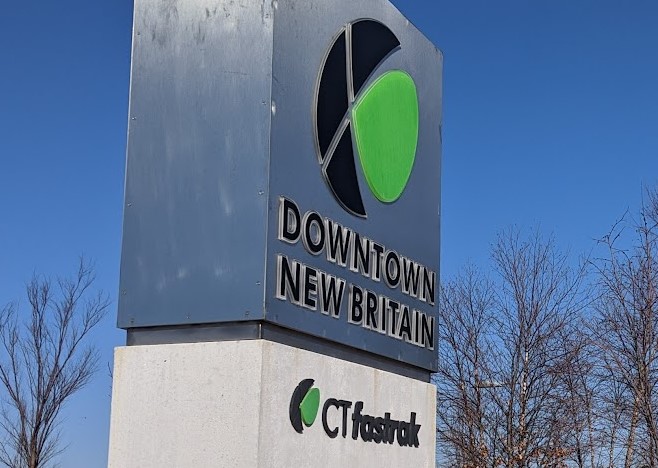Misleading Referendum Proposes High Level Patronage Job To Manage Municipal Government
by John McNamara
NEW BRITAIN – Creating a new chief operating officer to manage the municipality and making town clerk and tax collector jobs appointed instead of elected offices are big and very different questions for a referendum vote in November.Voters, however, won’t have a choice if they favor one change but not another. Both proposed changes are rolled up into one innocuous question that deliberately obscures what could be the most significant revisions to the city charter in a generation.
In June the Common Council, at the behest of the Mayor’s office, accepted recommendations for City Charter change from a five-member charter commission, but did not adhere to the Commission’s breakdown of specific questions for the ballot on all the changes: “Shall the remainder of the changes to the City Charter, as recommended by the Charter Revision Commission, be approved? Yes or No” Included in this one ballot question are both minor concerns over language and titles and substantive changes that aren’t “housekeeping” matters at all:
- Creation of a chief operating officer for the daily management of the city government within the scope of the office of mayor.
- Appointment of the Tax Collector and Town and City Clerk positions instead of by popular vote beginning in 2025.
- Mandating a charter revision commission at least every five years.
- Changing the Director of the Water Department title to “Deputy Director of Public Works Utilities” Updating language and removal of inactive commissions and committees.
By contrast the Common Council let stand the wording from the charter commission on what the composition of the 15-member Common Council should be. The ballot question clearly asks if five at large councilors can be dropped in favor of three members from each ward under the minority representation law.

The Charter Commission’s specific language for questions on a chief operating officer and tax collector and town and city clerk were ignored by the Council.
Whether the city should have a COO or appoint rather than elect the tax collector and town clerk deserves broad awareness, public discussion and, above all, clear language on the ballot questions.
But the Council majority, doing the bidding of Mayor Stewart, has ensured there’ll be no clear language on the ballot. When Justin Dorsey, Mayor Stewart’s Chief of Staff, was asked by a former elected official why the charter questions were combined, he reportedly gave the flimsy excuse that the ballot would have to be printed on two sides.
Inserting a COO job into the charter to perform mayoral duties is likely to raise concerns in a city with a strong mayor-council form of government and growing concerns over debt obligations. Voters will need to get to the fine print to understand what the vague ballot question involves short of hearing about it in a vigorous public awareness campaign. In a recent New Britain Herald Op-Ed, Mayor Stewart insisted that the public will find out what’s on the ballot if they read her column. “I will use this column over the next couple of months to go into more detail about a different aspect of the proposed Charter revisions.”
The Mayor should be asked to justify the move to create an executive job to perform mayoral duties. The COO proposal comes on the heels of a 12.5% salary hike for the Mayor from $87,971 to just under $100,000 ($99,027) in the fiscal year that began July 1. The mayor’s pay hike is not the issue here. Arguably, some sort of increase has been overdue for some time.
At issue is the padding of the City Hall bureaucracy with a patronage job in the Mayor’s office within a City Hall with high level managers in all city departments. If approved the new charter language creating a chief administrative officer would, in effect, turn the running of the city over to a city manager performing mayoral duties but retaining the full-time mayor. Presumably a COO’s salary would be equal to or likely exceed the mayor’s salary adding a another six figure post to the Mayor’s office that is not directly accountable to voters.
In other communities comparable to New Britain with a COO or appointed manager, there’s customarily a “weak” and ceremonial Mayor without a six figure salary. In 2023, a COO would further add to the budget in the Office of the Mayor that under Erin Stewart has increased salaries for all positions by 27% over the last five years, going from $325,146 in 2019 to $414,027 in the 2022-23 fiscal year.
Setting aside the merits of the charter changes, the Common Council’s failure to adopt clear and concise ballot questions is a blow to transparency and has undermined the charter revision process. Those of us opposed to a politically appointed Chief Operating Officer but very much for a Civil Service appointed tax collector and clerk have been disenfranchised.
from http://nbpoliticus.com August 21, 2022




